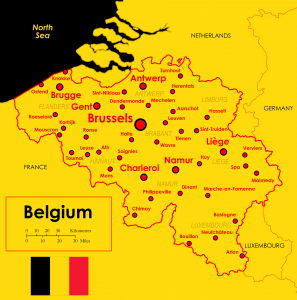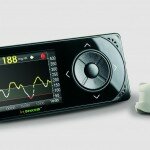
Belgium’s healthcare system -Our guide to Belgium’s doctors, dentists, hospitals and more.
You can be assured of the highest-quality medical care in Belgium, regarded on a par with the best healthcare systems in Europe. As in most countries, the system divides itself into state and private, though fees are payable in both, so you need to ensure that you are adequately covered through either the state insurance and/or private insurance. The advantages of the state mutuelle/mutualiteit scheme is that you can choose any doctor, clinic or hospital you like, in any location and without referral, according to your needs, in much the same way as you can with private insurance.
Doctors
General practitioners can be found in private practices or attached to clinics and hospitals and you have the freedom of to consult or register with whom ever you choose, as with specialist consultants. The decision is often based on location, language or recommendation. It’s always worth speaking to your neighbours or colleagues when you first arrive; everyone knows of a doctor, or has heard of one with a good reputation. Also try asking on the expatica.com social community. Embassies usually keep lists of doctors who can work in your language, though it is worth noting that most doctors have a good understanding of English. It’s always worth checking whether a doctor is registered in the national health service (conventionné/geconventioneerd) or private. The statemutuelle/mutualiteit scheme allows patients to choose their healthcare provider as long as they confirm the provider is registered with one of the insurance companies. Check the golden pages directory for an entire list of doctors in your area. Some doctors are both public and private, possibly working at a hospital and also in their own private practice. One thing to remember is to take cash with you. Consultations usually end with a cash payment, as very few doctors offer payment by card of any type. If you have state social security, reimbursement rates are calculated but only after you’ve paid up front. If you are on a private scheme, or are uninsured, you will pay the whole lot there and then. Therefore it’s always worth checking fees before you book an appointment.
Dentists
The majority of dentists in Belgium are private, though there are those who accept part-payment on state insurance. Dentists in Belgium have an agreed fee scale agreement, known as the convention with the social security, which sets the level of reimbursement for patients for basic treatment. Make it a priority to check when registering, as the fee differentials can be huge. For any specialist work, such as crowns and bridges, the dentist may well ask how you will pay and offer you different quotations. To qualify for health insurance reimbursement you’ll need to visit the dentist at least once a year. In the big cities, Brussels in particular, there are international dentistry practices, though they can be considerably more expensive.
Hospitals
As with general practitioners, you can arrange to see a specialist of your choice at any hospital. You can also walk into ‘emergency outpatients’ for immediate treatment; though as in other countries, do not use this as a GP replacement. You should remember to have your insurance card or other identifiable means of payment with you, though emergency treatment will not be refused if you don’t. If you’re going into hospital for a stay, take everything you need – towel and soap included – as nothing is provided. In Brussels the eleven big public hospitals are organized under the Iris association (www.iris-hopitaux.be)
Emergency treatment
In the event of an emergency you can call 100 or 112 and an ambulance will arrive quickly and take you to the nearest emergency centre. When you call they will need to know the type of emergency, address (municipality, street, house number, locality etc.) and the number of people in danger. Sometimes, a decision may be made to admit you to the best centre suited for your needs e.g. a specialist burns unit.
Pharmacies
Chemists are ubiquitous in Belgium – look for outlets with the green cross sign. There is a rota system for chemists to open outside of usual hours and throughout the night. Lists are available from any pharmacy, or check newspapers in your area for chemists that are open at night.
Pin It

Google+

Org Medlines

















Leave a Reply